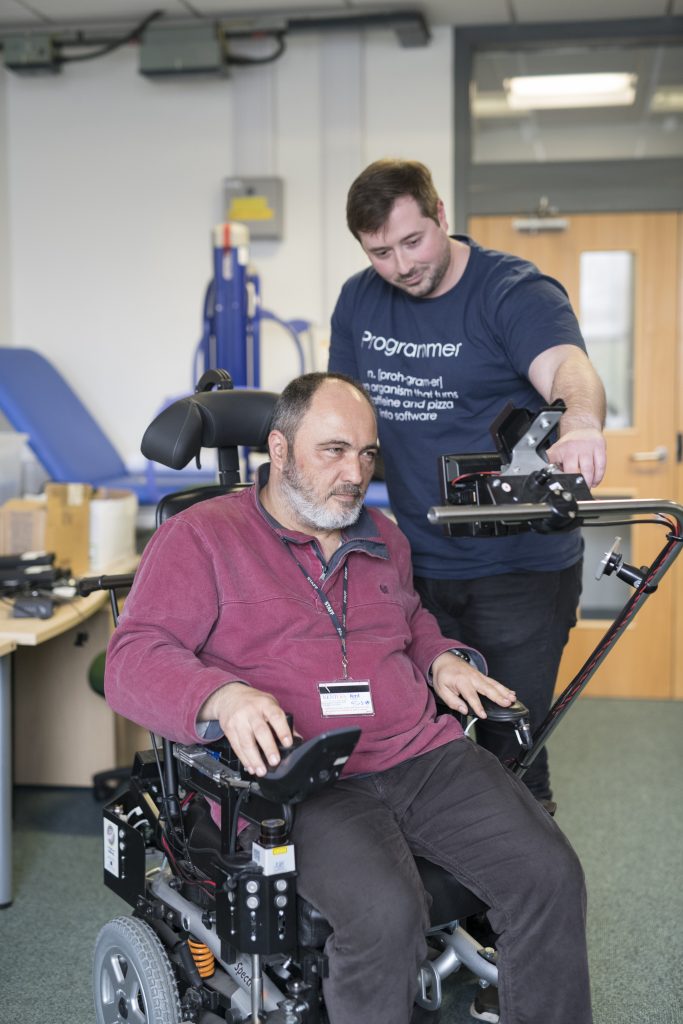Research being carried out by Dr Konstantinos Sirlantzis, Senior Lecturer in Intelligent Systems in the School of Engineering and Digital Arts at the University of Kent is helping to create smart wheelchairs that could help improve people’s independence and quality of life.
Working on a high-tech project called Assistive Devices for empowering Disabled People through robotic Technologies (ADAPT), the project involves smart wheelchairs that can detect movement and watch for obstacles, helping to improve people’s lives in the future.
ADAPT, which is funded by the European Regional Development Fund (ERDF) and the University of Kent, has recruited 10 people with disabilities through a nearby hospital’s neurorehabilitation unit, which focuses on individuals who’ve suffered from brain injuries and strokes.
Dr Sirlantzis is taking a modular-focused approach for ADAPT with his team combining AI and sensing technology to achieve collaborative control of the wheelchairs and conduct assessments of the emotional and physiological state of users.
These smart wheelchairs leverage AI to learn users’ movement preferences, style of driving, and their current physiology. Some of ADAPT’s advanced technologies include tracking the movement of a person’s head, nose, or iris to control wheelchairs, and LiDAR mapping to help with navigation and obstacle warnings.
For further information, please see the recent report in PC Magazine.

